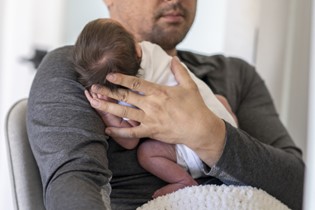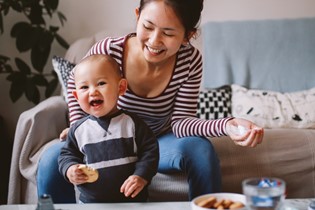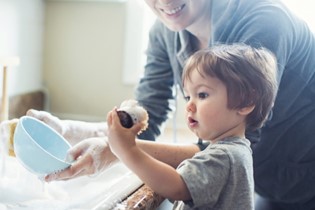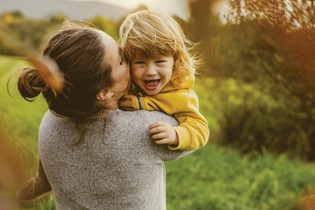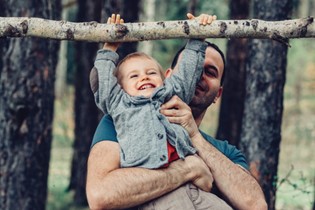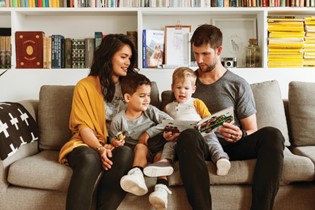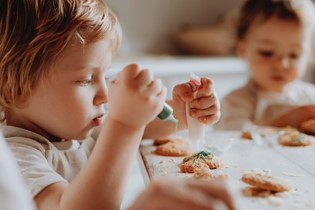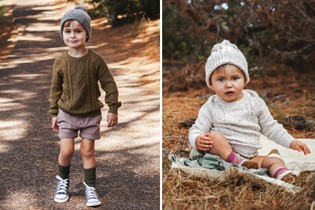How to grow great flatmates
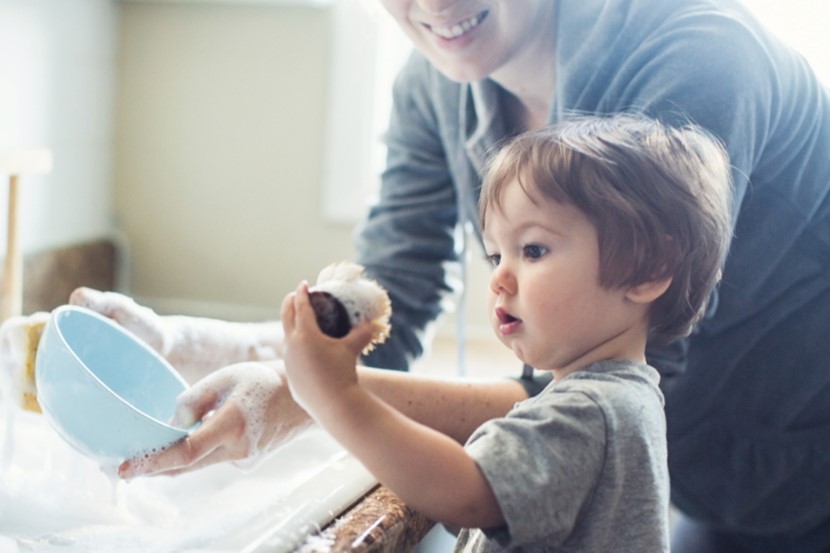
For mamas raising the next generation, Miriam McCaleb has an insightful message that your future self will thank you for reading!
Beautiful Millennial Mamas: I am here from the future to deliver an important message. In a way I am you, but with a firstborn who is now teenaged, and a baby who is now seven (years, not months).
Sitting here, halfway between mothering my babies and grandmothering my mokopuna (fingers crossed!), there are some things I’m finally learning about the importance of our little habits. As a long-time brain nerd and student of neurobiology, I learned ages ago about the of power routines for carving grooves in our lives. But there’s a difference between knowing something factually and knowing it experientially, right?
OPPORTUNITIES TO PRACTISE
Because each day brings certain things that have to happen, these can be harnessed as opportunities to practise, whether it’s a skill, a thought, a habit or a mindset. I’ve known professionals to use this power for good – physiotherapists prescribing toothbrushing as a cue to do calf-stretches, or midwives who encourage pelvic floor exercises while breastfeeding. Take a moment and I bet you can think of a dozen things you do consistently: showering, putting on a load of laundry, boiling the jug, emptying the dishwasher, getting your baby boy into pyjamas, brushing your daughter’s hair. Over and over – opportunities to practise.
MINDFUL MOMENTS
So, what exactly will we practise? Years ago, my mind was blown by a meditation teacher who explained how any activity can be meditation. She used the example of washing a sink full of dishes. When we slow down and lean in we notice the sensory experiences of this routine – the warm water on our hands and the slight tickle of soap bubbles popping on our skin.
What’s more, if we shush the script that might otherwise run in our head (the one where we’re complaining about cleaning or whining about washing), we make space to replace those thoughts with other ideas. We might marvel at the comparative luxury these dishes represent – how we have running water and food to eat while millions don’t. We could reflect on the conversations we had during the meal we’re now cleaning up. We could imagine the nutritious food making its way through our beautifully functioning digestive systems.
This habit has served me well over the years; it’s such a different take on the necessary components of daily life! As I clean the kitchen I can be full of gratitude and/or I can be a resentful wretch. When I mutter, “Lord, it seems like I’m the only one who ever wipes this bench!” – that’s true. And when I whisper, “I love taking care of my family!” – well, that’s true too. My self-talk goes a long way to deciding what I’ll emphasise, and this impacts everything.
Similarly, the caregiving routines we perform with our children might be islands of connection in a busy life, or they might be another frustrated interaction we rush to complete. I’ve said it before, and I’ll say it again: nappy changes are a blessing. They really can be a sweet opportunity to slow down a little, to share gazes, sing songs and have a laugh.
HIDDEN GEMS
Now I want to highlight another gift hidden in caregiving routines: the opportunity to let children practise doing things for themselves. They might practise things that will ultimately be of benefit just to them, like putting on socks or peeling a mandarin, and they might practise the things that are of service to the family, like putting plates in the dishwasher or refilling the dog’s water bowl.

I get it – it’s usually easier, tidier and faster to just quickly do things ourselves, but those repeated experiences of practising life-skills and everyday routines will add up. By the time your little one hits adulthood, they might have accumulated years of experience at cleaning up after themselves, or they might have accumulated years of experience of watching someone else (probably Mum) do it for them.
I recently watched a dear friend leap to her feet and reheat food for her 17-year-old, who had interrupted a dinner party to say, “This bread’s cold”. (Some of the things that ran through my head: “Heat your own flipping bread! Ask politely! Show some gratitude! What, are your legs painted on?”) Most 17-year-olds are fully capable of using a toaster and displaying grace, and they deserve to have the skills to do so. I wonder what micro-interactions could have been different throughout the lifespan to support the development of those skills in this young person.
Meanwhile, a lifelong friend emailed me about this same housework/cohabitation conversation. She said, “I wish my younger self had made the children do things for themselves right from the start.” My dear young mamas, this friend joins me in sharing a message from the future. Hear us when we suggest that it serves our children as much as it serves us when we teach them how to do things for themselves – and take the time to consistently insist that at least some of those things regularly occur.
TIME TO TEACH
The practical skills of life – whether we’re talking about tying shoelaces, beating eggs or creating a spreadsheet – require practise. And the skills of life that will make your child be a useful adult are definitely worth practising. The skills we encourage in our children, early in their lives, may serve to help them become confident in their own abilities, not to mention a popular flatmate or a good partner to somebody one day down the track.
Moreover, the intangible skills of life – things like dealing with disappointment, waiting for a turn or noticing if someone else is unhappy – also require practise. These qualities will also help our children to become good flatmates, spouses and co-workers.
So, whenever possible, we really should take time to teach kids stuff, even when it’s inconvenient in the moment. By toddlerhood, children are capable of a beginner’s version of putting their own belongings away, setting the table and changing the toilet roll. The key is to allow kids to be beginners at these jobs. They won’t be able to finish a job to adult standards until they’re adults, but from an early age they can start to contribute and to feel the buzz that comes with contributing, also known as mana tangata.
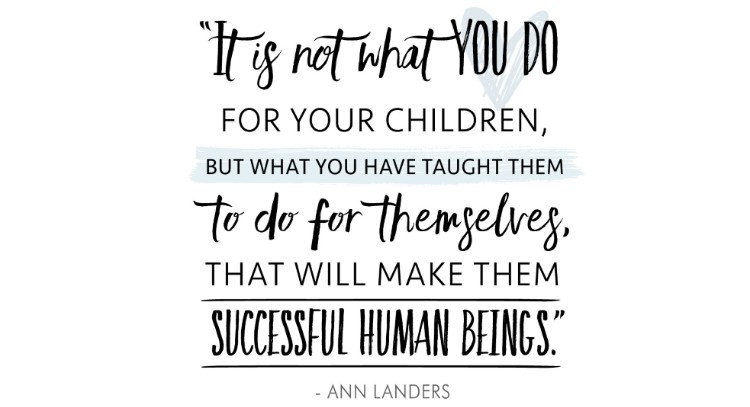
RAISING LITTLE HELPERS
Dr Richard Freed is a child and adolescent psychologist, author and speaker from California. He uses the examples of early pioneers to contrast today’s parental expectations and social norms with those of the past. Think about what you know of historic accounts of family life, and the role of children and adolescents in those stories. Young people were expected (required!) to help tend livestock, get in harvests and help with smaller siblings.
Friends, I’m not suggesting we return to the days of child labour. I’m a huge advocate for free play, and I have the UNICEF Convention on the Rights of the Child on my office wall! However, I agree with Dr Freed when he points out how problematic it is that many privileged modern children grow up divorced from the practical realities of everyday life. Someone (probably Mum) cooks dinner while children watch TV. Someone (probably Mum, again) cleans up the kitchen while children are in bedrooms on iPads. Someone (guess who?) cleans the bathroom while the children… well, couldn’t they help clean the bathroom?
Now, think about what you know about family life all over the world. What does child and adolescent development look like elsewhere? Jared Diamond’s book The World Until Yesterday describes life in traditional societies where older siblings care for younger siblings, adolescents learn to hunt, and kids light cooking fires and use knives. Similarly, Professor of Psychology Darcia Narvaez has written extensively on this subject, which she summarises as “Growing up to be a good and useful human being”.
We all want to give our kids better lives than we had, that’s human nature. But I’m wondering, what if our attempts to smooth their paths are inadvertently making their lives worse, robbing them of opportunities to learn? What if repeatedly doing things for them creates lousy flatmates, clueless spouses and years of avoidable bickering in the future?
Teaching our kids some practical skills and tolerating their grizzling as they clean up their own messes will serve them (and us!) for decades to come. After all, as writer Ann Landers said, “It is not what you do for your children, but what you have taught them to do for themselves, that will make them successful human beings.”
|
FIVE FANTASTIC IDEAS FOR GROWING GREAT FLATMATES
🤍 Let a beginner be a beginner, ie lower your standards at first. They might put too much dishwashing liquid in the sink when having a go at the dishes. They might fold washing with horribly placed creases. But that’s how you do it when you’re getting started. Just be prepared to quietly redo things as kids are learning.
🤍 Find your child’s motivator. Is it food? Kids can help make their favourite items, and not just biscuits and cakes, but meals too. Do they love a challenge? One friend said to me, “There are things that my kids love doing because they thought I’d say they couldn’t do it, like taking the wheelie bins out”.
🤍 Tidying up after oneself is something worth nagging about, even if you have to help do it for a while, and because consistency really is your friend! |
Miriam McCaleb is a researcher, writer and mother. She lives and works in North Canterbury, where the residential mysteries include: how are there always so many pairs of shoes in the living area? Is there still carpet under all that Lego? And where did all these single socks come from? Visit her at baby.geek.nz.

AS FEATURED IN ISSUE 49 OF OHbaby! MAGAZINE. CHECK OUT OTHER ARTICLES IN THIS ISSUE BELOW



